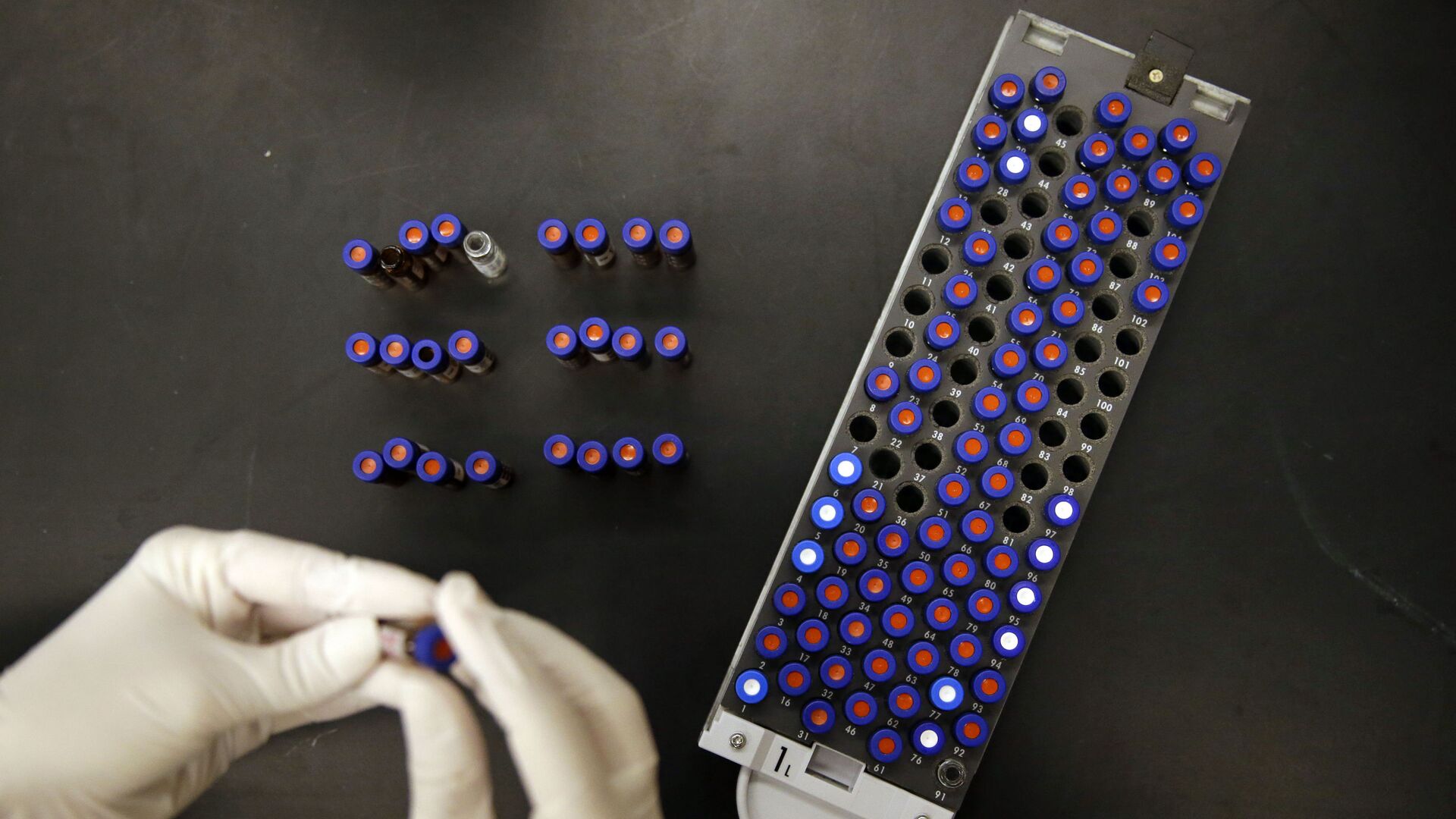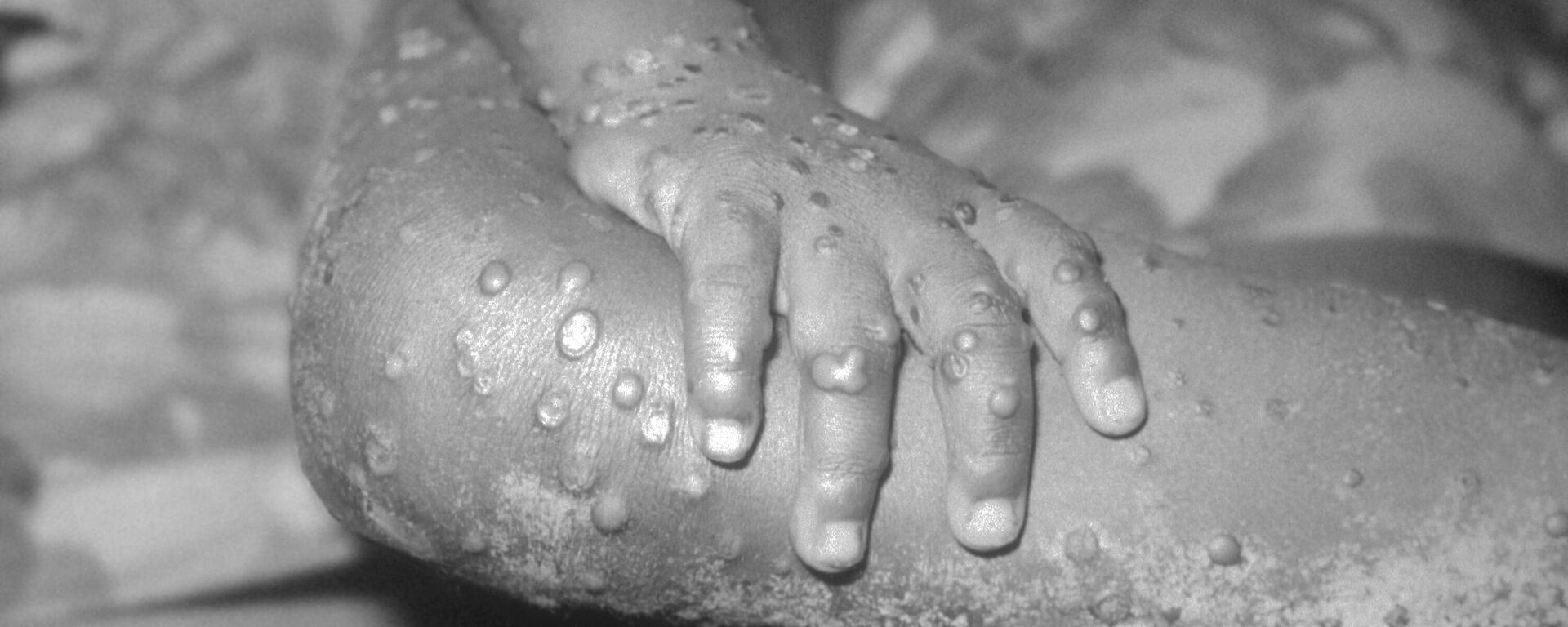https://sputnikglobe.com/20220523/scotland-denmark-confirm-first-cases-of-monkeypox-1095720996.html
Scotland, Denmark Confirm First Cases of Monkeypox
Scotland, Denmark Confirm First Cases of Monkeypox
Sputnik International
MOSCOW/MURMANSK (Sputnik) - Scotland and Denmark confirmed the first cases of monkeypox on their territories on Monday following a sudden outbreak of the... 23.05.2022, Sputnik International
2022-05-23T15:11+0000
2022-05-23T15:11+0000
2022-05-23T15:11+0000
world
europe
scotland
denmark
monkeypox
https://cdn1.img.sputnikglobe.com/img/07e5/04/11/1082652467_0:60:3077:1791_1920x0_80_0_0_55a2b7caafb75aece4c55cccc931c4e0.jpg
"Public Health Scotland is aware of an individual in Scotland who is confirmed to have monkeypox. The affected individual is being managed and treated in line with nationally agreed protocols and guidance," Director of Public Health Science at the Public Health Scotland (PHS) Nick Phin said in a statement.The PHS is cooperating with other health agencies and partners in Scotland and the United Kingdom to investigate a source of the infection, identify close contacts of the infected individual and provide them with health information. The exposed people can be offered vaccination, the statement read.Denmark has also registered the first case of monkeypox in a man who has recently returned from Gran Canaria — one of the main island of the Canary Islands archipelago. The individual is experiencing mild symptoms and is staying at home on isolation, the Danish Statens Serum Institut (SSI), which detected the infection, said. The SSI added that the Danish Agency for Patient Safety is currently trying to identify close contacts of the infected man.Meanwhile, the number of infections is rapidly increasing in Portugal. Over the past 24 hours, 14 people were tested positive for monkeypox, bringing the total number of cases in the country to 37. The Portuguese Ministry of Health is expecting even more infections to be confirmed soon, as some samples are still being studied.Germany is also facing a rising incidence of the disease. To date, the country's health ministry has confirmed four monkeypox cases, while predicting more infections to be registered soon, given infected people's contacts. Despite this, the authorities are evaluating the threat of monkeypox to the German population as moderate, since most patients are experiencing mild symptoms.The UK Health Security Agency was the first health authority outside Africa to publicly report a case of monkeypox on May 7, in a patient who had recently traveled from Nigeria. Since then, cases of monkeypox have also been confirmed in Australia, Belgium, Canada, France, Germany, Italy, Portugal, Spain, Sweden, and the United States.Monkeypox is a rare viral disease, which is usually transmitted to people from wild animals, but also can be transmitted from human to human through body fluids, respiratory droplets, and other contaminated materials. The disease fatality rate ranges from 1% to 10%.Monkeypox predominantly results in swelling of the lymph nodes and widespread rash on the body, similar to the symptoms seen in patients with smallpox, but less severe. The incubation period usually lasts from six to 13 days, but in some cases, it can last up to 21 days. The symptoms of monkeypox include fever, back and muscle pain, and a rash on the body.
https://sputnikglobe.com/20220523/un-aids-body-says-media-monkeypox-reports-are-homophobic-and-racist-1095714519.html
scotland
denmark
Sputnik International
feedback@sputniknews.com
+74956456601
MIA „Rossiya Segodnya“
2022
Sputnik International
feedback@sputniknews.com
+74956456601
MIA „Rossiya Segodnya“
News
en_EN
Sputnik International
feedback@sputniknews.com
+74956456601
MIA „Rossiya Segodnya“
Sputnik International
feedback@sputniknews.com
+74956456601
MIA „Rossiya Segodnya“
europe, scotland, denmark, monkeypox
europe, scotland, denmark, monkeypox
Scotland, Denmark Confirm First Cases of Monkeypox
MOSCOW/MURMANSK (Sputnik) - Scotland and Denmark confirmed the first cases of monkeypox on their territories on Monday following a sudden outbreak of the disease in Europe and North America last week, local health agencies said.
"Public Health Scotland is aware of an individual in Scotland who is confirmed to have monkeypox. The affected individual is being managed and treated in line with nationally agreed protocols and guidance," Director of Public Health Science at the Public Health Scotland (PHS) Nick Phin said in a statement.
The PHS is cooperating with other health agencies and partners in Scotland and the United Kingdom to investigate a source of the infection, identify close contacts of the infected individual and provide them with health information. The exposed people can be offered vaccination, the statement read.
Denmark has also registered the first case of monkeypox in a man who has recently returned from Gran Canaria — one of the main island of the Canary Islands archipelago. The individual is experiencing mild symptoms and is staying at home on isolation, the Danish Statens Serum Institut (SSI), which detected the infection, said. The SSI added that the Danish Agency for Patient Safety is currently trying to identify close contacts of the infected man.
"In general, Danes have nothing to worry about, but we are well aware of the outbreak because this is the first time we are witnessing a wider spread of the disease beyond Africa. So we cannot predict in advance how many people may be infected," SSI spokeswoman Tyra Grove Krause said.
Meanwhile, the number of infections is rapidly increasing in Portugal. Over the past 24 hours, 14 people were tested positive for monkeypox, bringing the total number of cases in the country to 37. The Portuguese Ministry of Health is expecting even more infections to be confirmed soon, as some samples are still being studied.
Germany is also facing a rising incidence of the disease. To date, the country's health ministry has confirmed four monkeypox cases, while predicting more infections to be registered soon, given infected people's contacts. Despite this, the authorities are evaluating the threat of monkeypox to the German population as moderate, since most patients are experiencing mild symptoms.
The UK Health Security Agency was the first health authority outside Africa to publicly report a case of monkeypox on May 7, in a patient who had recently traveled from Nigeria. Since then, cases of monkeypox have also been confirmed in Australia, Belgium, Canada, France, Germany, Italy, Portugal, Spain, Sweden, and the United States.
Monkeypox is a rare viral disease, which is usually transmitted to people from wild animals, but also can be transmitted from human to human through body fluids, respiratory droplets, and other contaminated materials. The disease fatality rate ranges from 1% to 10%.
Monkeypox predominantly results in swelling of the lymph nodes and widespread rash on the body, similar to the symptoms seen in patients with smallpox, but less severe. The incubation period usually lasts from six to 13 days, but in some cases, it can last up to 21 days. The symptoms of monkeypox include fever, back and muscle pain, and a rash on the body.



